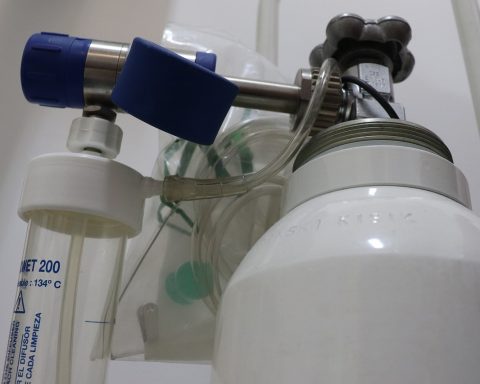Prebiotics are dietary supplements designed to regulate the composition of gut microbiota, which can benefit people’s health. Galactooligosaccharides (GOS), oligofructose (a subgroup of inulin), and fructooligosaccharides (FOS) are examples of prebiotics.
Before delivery, an infant’s gastrointestinal tract is sterile, but after birth, microorganisms rapidly colonize the baby’s digestive tract, which is part of adapting to extrauterine life. This early colonization plays a crucial role in the development of the innate and adaptive immune system.
An infant’s gastrointestinal microbiota—a community of symbiotic and pathogenic microorganisms including bacteria, fungi, and viruses—is an important constituent of the gut defense barrier and an obvious target in the development of functional foods.
A new trend focuses on producing foods, including infant formulas, that stimulate the growth or activity of beneficial microorganisms in the gastrointestinal tract. Now, several different nutrition companies manufacture infant formulas supplemented with prebiotics.
A Research Study
A group of Belgian researchers carried out a study titled “Physiological and Bifidogenic Effects of Prebiotic Supplements in Infant Formulae” in order to compare the effect of prebiotics in different infant formulas. The study was published in the Journal of Pediatric Gastroenterology and Nutrition.
The participants were randomly distributed into five different feeding groups: one breastfed control group and four groups that received a specific prebiotic-supplemented infant formula specially prepared for the trial.
The first group received a standard formula with 0.4g/dl of prebiotics. The second group received a standard formula with 0.8 g/dl of prebiotics. The third group received a standard formula that contained a 9:1 ratio of GOS and FOS. The fourth group received a standard formula without additives.
On average, the four infant-formula groups each had twenty children, and the breastfed control group had twenty-nine children. No serious adverse events occurred throughout the study, but some infants were withdrawn from the study due to some gastrointestinal symptoms, such as reflux or even hunger.
The initial objectives were to check the tolerance of each formula mixture, obtain physiological parameters, and collect data on fecal microbiota.
The parents kept a diary in which they recorded some important data about formula intake, stool characteristics, crying behavior, the occurrence of regurgitation or vomiting. Stool samples were collected on the third, fourteenth, and twenty-eighth days.
Results
While the formula was well tolerated, it did not satisfy the children’s appetite. However, this did not affect the continuation of the study.
There was no excessive crying, regurgitation, or vomiting in any of the different groups. There were also no growth failures in any of the groups. In all of the prebiotic groups, the stool consistency improved without any signs of dehydration.
Furthermore, the tests carried out on the stool from the different groups showed that there was an adequate development of beneficial bacteria in the gut, especially in those children who received a higher dose of prebiotics in combination with the standard formula.
In conclusion, the addition of prebiotics to standard formula was well tolerated and led to normal thriving. Formula enrichment with 0.8 g/dL of prebiotics led to softer stools, with a fecal consistency closer to those of breastfed infants. This bifidogenic effect mirrors only one of the many advantages of breast milk, which remains the best food for infants. Parents who plan to include infant formulas with prebiotics in their child’s diet should visit a pediatrician before making a decision.
Reference
Veereman-Wauters, G., S. Staelens, H. Van de Broek, K. Plaskie, F. Wesling, L. C. Roger, A. L. McCartney, and P. Assam. “Physiological and Bifidogenic Effects of Prebiotic Supplements in Infant Formulae.” Journal of Pediatric Gastroenterology and Nutrition 52, no. 6 (2011): 763–771. Retrieved from https://journals.lww.com/jpgn







